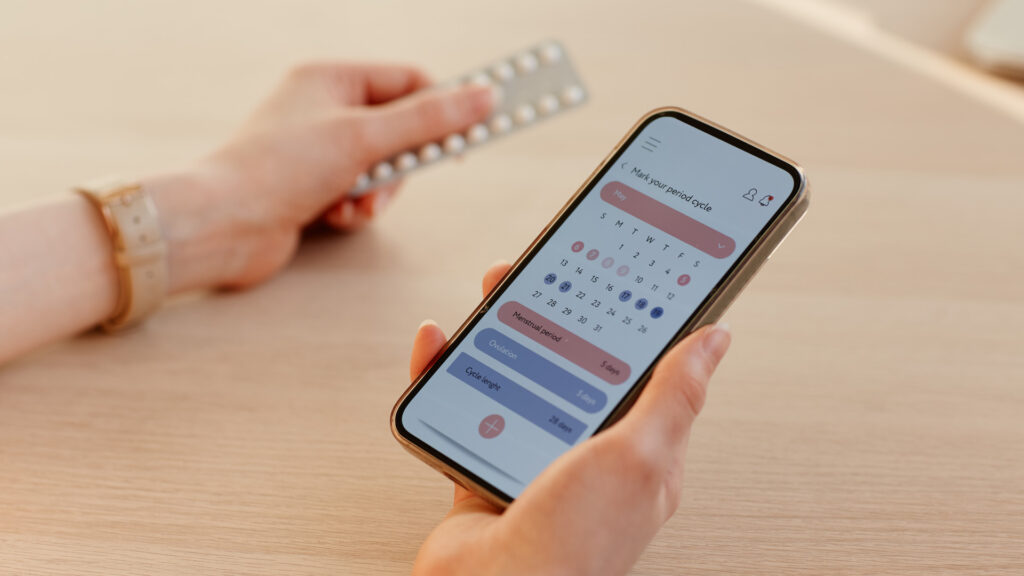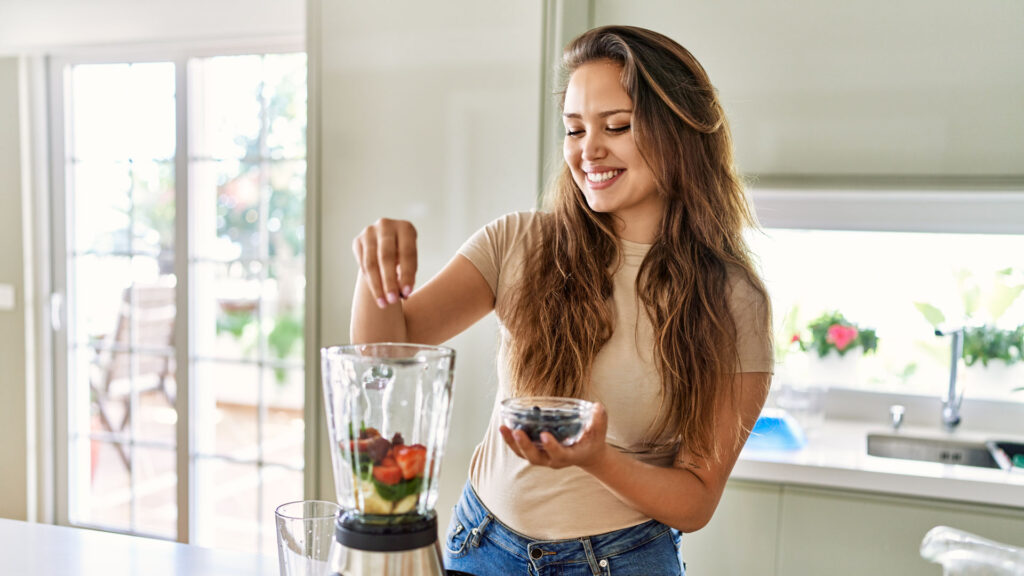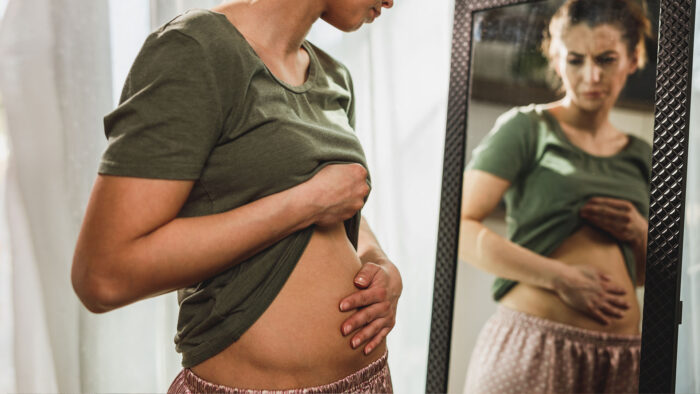Getting pregnant faster: follow these 10 science-backed tips for the best results
- READING TIME 10 MIN
- PUBLISHED November 02, 2023
- AUTHOR Donna
Key takeaways
- If you want to conceive as fast as possible, you have to know when to have sex. We help you learn how to pinpoint your fertility window.
- For best results, try to get enough sleep, avoid alcohol, stop smoking, cut back or even eliminate coffee and take up a healthy, balanced diet.
- Before you officially start working on a baby, start taking prenatal nutrients that include folic acid which helps protect against certain birth defects.
- Keep in mind that fertility naturally decreases with age. Seek assistance if you don’t conceive after one year of regular, unprotected sex (or after six months if you are older than 35 years).
Getting pregnant faster: follow these 10 science-backed tips for the best results
You’ve decided to have a baby and now you want to speed up the process a bit? There are many myths about fertility that can end up being just a big waste of time – doing it missionary style, as one old wives’ tale goes, will not get you pregnant any faster. But you can still increase your chances and safeguard the start of the pregnancy by following certain proven and scientifically backed practices. We present you with 10 things that will help you avoid the frustrating parts and get you to achieve the much-wanted goal as fast as possible.
Nail down your fertile window
If you want to conceive quicker, you have to know when to have sex. The “fertile window” typically spans six days – the five days prior to ovulation (this is the lifespan of the sperm in your reproductive tract) and the day when the egg is released. The best time to have sex is one to two days before you ovulate – this is when the chances of a sperm greeting the egg are the highest. 1
Predicting your ovulation can therefore take much of the guesswork out of pregnancy planning, but it’s not always straightforward. In theory, ovulation occurs around the 14th day after the period starts, but only if you have a consistent, 28 days long menstrual cycle. Studies, however, show that most women don’t have a “standard” cycle with ovulation occurring anytime between 11 to 21 days after the first day of your last period (or even earlier or later if you have a particularly short or long cycle 2). Moreover, the time and duration of ovulation change over a person’s lifetime.
Regardless of the type and length of your cycle, there are ways to track ovulation. One widely used method is measuring your basal body temperature (BBT). This is the temperature when your body is fully rested, typically first thing in the morning. BBT slightly rises after you ovulate, between 0.3 °C to 0.6 °C. By tracking your basal body temperature each day, you can predict when in the cycle you would normally ovulate. 3

Another method, albeit less reliable, is to observe the signs of ovulation and plan baby-making sex accordingly. The most common symptoms are light spotting, clear, stretchy cervical mucus, breast sensitivity, increased libido and change in cervical position. 4 To learn more about how to successfully track your egg releases, jump over to our detailed article which dives deeper into all the ways you have at disposal to pinpoint the fertile window.
Have sex often, but no need to overdo it
Knowing all there is to know about fertile days, how much sex should you have? First rule: as much as it feels good! Obsessively scheduling sex may not be a good idea and can lead to unnecessary stress. 5 Getting it on every day won’t really make a difference, anyway. Health professionals recommend having sex every second or third day. 6
Lay in bed for a bit after sex, it may help
First of all, you can conceive in just about any sex position. There’s no evidence that sex positions influence your chances of having a baby.
Some research, however, suggests that lying in bed for 15 minutes after sex may help the sperm make its way up through the cervix. 7 This research was conducted on women who underwent intrauterine insemination (IUI) which means it’s not necessarily applicable to conception rates after having regular unprotected sex, especially if you do it in your fertile days when vaginal mucus is very receptive to sperm – the fastest swimmers will enter your cervix almost instantaneously. Still – some fertility professionals may suggest doing it.

Don’t use lube and don’t douche after sex
Certain water-based vaginal lubricants can decrease the movement of sperm or even “kill” the sperm before it may have a chance to reach the egg. 8 Go for a lubricant that’s based on hydroxyethylcellulose because it doesn’t decrease sperm motility since it acts similarly to vaginal mucus. Alternatively, you can try ramping up the foreplay to enhance your own natural lubrication.
Douching, washing the vagina with water or other fluids, after sex may also sabotage your chances of getting pregnant (it also increases the risk for a pelvic infection). The practice may disrupt the vagina’s natural balance, wash away cervical mucus and possibly eliminate good bacteria.
Improve sperm count
Your partner’s little swimmers are obviously very important in the fertility dance. Many factors can decrease sperm quality and quantity – smoking and alcohol being one of the main known culprits. 9 Hot baths and tight-fitting briefs will increase the temperature of the testicles which in turn may also prevent sperm to do its job successfully. 10
Get off birth control
Once you stop using birth control, it’s possible to get pregnant at any time. This is patently obvious with condoms or diaphragms, but not necessarily if you use hormonal contraceptives. 11 If you take a combined pill, containing both estrogen and progestin, your ovulation is typically back within 30 days of quitting contraceptives. This means you can, in theory, conceive after only 14 days and before your first period.
If having a baby is the reason for discontinuing hormonal contraceptives, doctors suggest you wait for your first natural period before having unprotected sex. This way you’ll be able to better predict ovulation and fertility window and start taking important prenatal vitamins, such as folic acid. Also, remember that your periods may have been irregular before you started taking the pill, and you may want to allow up to three months for your natural menstrual cycle to fully re-establish itself. 12 To learn more about getting pregnant after quitting the pill, jump over to our blog and read all about the things you should consider when making the decision.
Make lifestyle changes
Basic suggestions: try to get enough sleep, avoid alcohol, cut back or even eliminate coffee and take up a healthy balanced diet. 13 Eating a variety of healthy foods can help prepare your body in advance for pregnancy by stocking up on critical nutrients, such as calcium, proteins and iron. Make sure to follow a diet full of fruits and vegetables, lean protein, whole grains, dairy and healthy sources of fat. 14

Exercise has also been associated with a reduced risk of fertility problems.15 But if you’re used to vigorous, intense exercise, it may help to bring down the level of activity as such frequent strenuous workout could interfere with ovulation. 16
Smoking is one of fertility’s worst enemies. 17 Chemicals found in cigarette smoke, such as nicotine and carbon monoxide, make the ovaries age faster and deplete the egg reserve prematurely. 18 19 Also try to avoid passive smoke, which may affect your chances of becoming pregnant as well.
Finally, body weight plays an important role. Having too much body fat produces excess estrogen, which can interfere with ovulation. 21 According to research, obese couples will need considerably more time to become pregnant. 2223 Keep in mind that being underweight might cause similar problems by leading to hormone imbalances that affect ovulation. 24 Obesity has implications on male fertility, too – it can disrupt the hormonal system in men and their sperm viability. 25
Start taking prenatal nutrients
Before you officially start working on a baby, start taking prenatal nutrients that include folic acid. This man-made form of vitamin B9 has been proven to help protect against certain birth defects, such as spina bifida. 26 27 Because the neural tube closes in the early stages of pregnancy, it’s important to get enough folic acid before you conceive – ideally, three months before. 28
The recommended dosage of folic acid should be at least 400 micrograms (µg) per day. 29 Make sure that the supplement contains “5-MTHF” active form that will also work in people who are not able to convert folic acid themselves. Learn more about the differences in our article or meet Donna’s active-form folic acid Qute.
In addition to folic acid, you may also want to consider supplements or a diet rich in iron, calcium, vitamin D, zinc or other nutrients depending on the circumstances. 30

Talk to your doctor
Your doctor can give you advice on nutrition, lifestyle and overall health – everything that may help you conceive faster. Schedule your check-up before starting to work on a baby and discuss any pre-existing conditions, medications you’re currently taking and other questions or concerns you might be having.
Keep in mind that fertility naturally declines with age
Finally, keep in mind that fertility naturally decreases with age. Even at the peak (female) fertile years in your 20s, the chances of getting pregnant in any given month are only about 1 in 5. Most healthy couples who have frequent, unprotected sex will still become pregnant within a year. 31 32
But as you age, eggs in ovaries decline in quantity and quality which makes it harder for them to become fertilized. There’s a sharp decline of fertility after age 37 and an even steeper after you hit 40. 33 As you grow older, you are also more at risk for certain reproductive-health related problems such as uterine fibroids, endometriosis or fallopian tubes blockage. All of them may contribute to loss of fertility.
If you’re over 35 and have been trying to get pregnant for six months or more, you may want to consider an infertility evaluation. Younger women (and men) may want to do the same after one year of having unprotected regular sex. We invite you to read more about infertility causes and treatments in our dedicated article.
REFERENCES
- https://www.reproductivefacts.org/resources/infographic-gallery/images/the-fertile-window-is-the-six-days-leading-up-to-and-ending-on-ovulation
- https://www.nature.com/articles/s41746-019-0152-7?utm_medium=affiliate&utm_source=commission_junction&utm_campaign=CONR_PF018_ECOM_GL_PHSS_ALWYS_PRODUCT
&utm_content=textlink&utm_term=PID100052172&CJEVENT=05343162ba9811ec80f3013e0a180514 - https://www.uofmhealth.org/health-library/hw202058
- https://www.verywellfamily.com/signs-of-ovulation-1960281
- https://bjui-journals.onlinelibrary.wiley.com/doi/abs/10.1111/j.1464-410X.2012.11577.x
- https://www.nhs.uk/pregnancy/trying-for-a-baby/trying-to-get-pregnant/
- https://www.bmj.com/content/339/bmj.b4080
- https://www.mayoclinichealthsystem.org/hometown-health/speaking-of-health/trying-to-get-pregnant-select-a-lubricant-that-is-most-helpful-for-sperm
- https://health.clevelandclinic.org/lowering-your-sperm-count-male-infertility/
- https://www.ncbi.nlm.nih.gov/pmc/articles/PMC2721724/
- https://www.nhs.uk/conditions/contraception/when-periods-after-stopping-pill/
- https://www.nhs.uk/conditions/contraception/when-periods-after-stopping-pill/
- https://www.bmj.com/company/newsroom/no-safe-level-of-caffeine-consumption-for-pregnant-women-and-would-be-mothers/
- https://www.mayoclinic.org/healthy-lifestyle/pregnancy-week-by-week/in-depth/pregnancy-nutrition/art-20045082
- https://academic.oup.com/humrep/article-abstract/35/3/676/5804223?redirectedFrom=fulltext
- https://link.springer.com/article/10.2165/00007256-198907020-00002?fbclid=IwAR1uy9ywvj9azp4MT66-bdza6Du7XDJPg3B093IVImI9FGVbpDQsO_qjX8g
- https://link.springer.com/article/10.1186/s12958-020-0567-7
- https://www.reproductivefacts.org/globalassets/asrm/asrm-content/learning–resources/patient-resources/protect-your-fertility3/smoking_infertility.pdf
- https://www.mayoclinic.org/healthy-lifestyle/getting-pregnant/in-depth/female-fertility/art-20045887
- https://tobaccocontrol.bmj.com/content/18/2/115.long
- https://health.clevelandclinic.org/does-being-overweight-affect-your-changes-of-getting-pregnant/
- https://pubmed.ncbi.nlm.nih.gov/32324768/
- https://academic.oup.com/humrep/article/32/3/662/2964862
- https://www.betterhealth.vic.gov.au/health/conditionsandtreatments/weight-fertility-and-pregnancy-health#underweight-and-fertility
- https://pubmed.ncbi.nlm.nih.gov/32399992/
- https://www.ncbi.nlm.nih.gov/pmc/articles/PMC3279093
- https://academic.oup.com/ajcn/article/85/1/285S/4649476
- https://www.tommys.org/pregnancy-information/planning-a-pregnancy/are-you-ready-to-conceive/benefits-taking-folic-acid-pregnancy
- https://ods.od.nih.gov/factsheets/Folate-HealthProfessional/
- https://www.mayoclinic.org/healthy-lifestyle/pregnancy-week-by-week/in-depth/prenatal-vitamins/art-20046945
- https://www.mayoclinic.org/healthy-lifestyle/getting-pregnant/in-depth/how-to-get-pregnant/art-20047611#:~:text=With%20frequent%20unprotected%20sex%2C%20most,year%20before%20consulting%20a%20doctor.
- https://academic.oup.com/humrep/article/18/9/1959/708200
- https://www.livescience.com/55659-pregnant-at-age-40-50-and-even-60-here-are-the-risks.html
RELATED ARTICLES
Explore more
Feed your curiosity with more content. Dive deeper and explore our selected articles, curated just for you.




